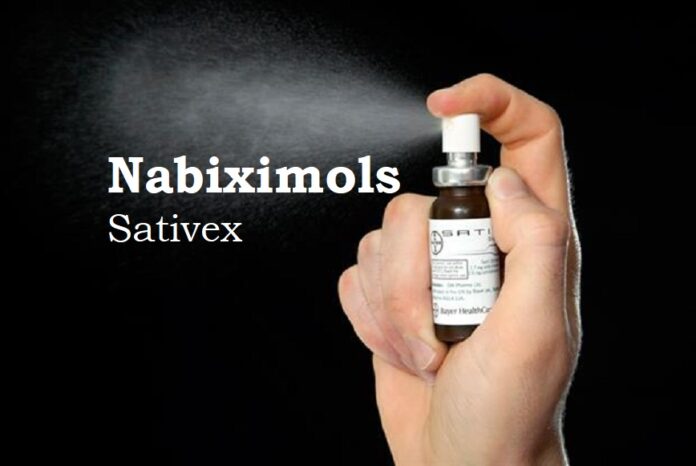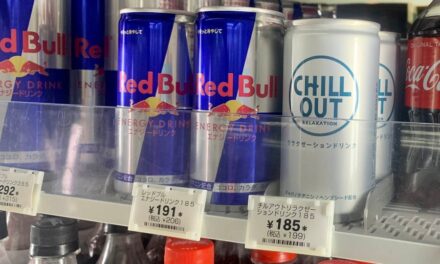November 13, 2020 More than 20 years after GW Pharmaceuticals began developing Sativex —a 50:50 mix of THC and CBD— as a treatment for MS-related spasticity, FDA approval might be near, we infer from a press release issued today. (GW’s US subsidiary is called “Greenwich Biosciences.” The company coined the unlovely term “Nabiximols” to categorize its cannabis-plant extracts.)
“Between 60 and 90 percent of people with multiple sclerosis report experiencing spasticity; and muscle weakness can be a serious side effect with current anti-spasticity medications,” said Francois Bethoux, MD, Director of Rehabilitation Services, The Mellen Center for Multiple Sclerosis Treatment and Research, The Cleveland Clinic Foundation, and a consultant to GW Pharmaceuticals. “Muscle weakness in MS is more than feeling weak; it represents genuine difficulty in moving and can make even daily activities like walking and dressing challenging. We are encouraged that the data from these trials showed that nabiximols not only improved patient-reported spasticity but also did not appear to increase muscle weakness or negatively affect preferred walking speed.”
Data from three randomized, placebo-controlled trials of nabiximols (GWMS0106, GWSP0604, and SAVANT) conducted in Europe were analyzed to assess the relationship between measures of spasticity and muscle strength in lower extremities or walking speed. Spasticity was evaluated using the Numerical Rating Scale (NRS) in all three trials, muscle strength using Motricity Index (MI) in GWMS0106 and GWSP0604, and mobility using timed 10-Meter Walk Test (10MWT) in GWSP0604 and SAVANT. All three trials enrolled persons with MS-related spasticity inadequately managed by current medications.
GWMS0106: Nabiximols significantly improved mean NRS spasticity score vs. placebo (-0.52 points; p=0.048), without significantly affecting the MI for legs (3.86, p=0.054).
GWSP0604: Nabiximols significantly improved mean NRS spasticity score from baseline vs. placebo (-0.84, p=0.0002), without significantly affecting the MI for legs (0.97, p=0.439) or the 10MWT results (-3.34, p=0.069).
SAVANT: Nabiximols significantly improved mean NRS spasticity vs. placebo (-1.9, p<0.0001), without significantly affecting the 10MWT results (-1.71, p=0.11).
The analysis included data from 184 participants in GWMS0106, 241 participants in GWSP0604, and 106 participants in SAVANT.
Nabiximols is approved by regulatory bodies in 28 countries outside the United States to treat MS spasticity. GW recently initiated the first global Phase 3 clinical trial studying nabiximols for MS spasticity that will engage patients and investigators in the United States. The first trial is one of five new pivotal studies planned for nabiximols in MS spasticity globally, with the remaining studies on track to commence later in 2020 or in 2021.
“These studies, which served as the basis for nabiximols regulatory approvals outside the U.S., provide important insights into the potential of nabiximols for people with MS-related spasticity,” said Justin Gover, GW’s Chief Executive Officer. “We are now recruiting participants for the first nabiximols Phase 3 clinical trial in the U.S. in pursuit of our goal of bringing to market the first FDA-approved medicine derived from the whole cannabis plant for the treatment of spasticity in MS.”
About Nabiximols
Nabiximols is in pivotal Phase 3 development in the United States for the treatment of MS spasticity. The U.S. commercial rights are owned by GW. In addition to MS spasticity, GW expects to develop nabiximols in Spinal Cord Injury spasticity.
Nabiximols is a complex botanical medicine formulated from extracts of the cannabis plant that contains the principal cannabinoids THC and CBD and also contains minor constituents, including other cannabinoid and non-cannabinoid plant components, such as terpenes, sterols, and triglycerides. The product is administered as an oral spray.
Nabiximols is known as Sativex® outside of the U.S. and is indicated in numerous countries as a treatment for symptom improvement in adult patients
with moderate to severe spasticity due to multiple sclerosis (MS) who have not responded adequately to other anti-spasticity medication and who demonstrate clinically significant improvement in spasticity related symptoms during an initial trial of therapy.
These approvals were based on multiple pivotal trials conducted in Europe.
Nabiximols is currently not approved for any indication in the U.S.





